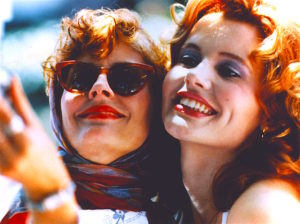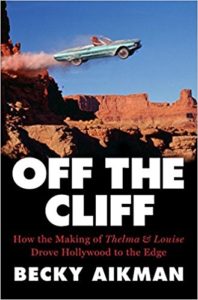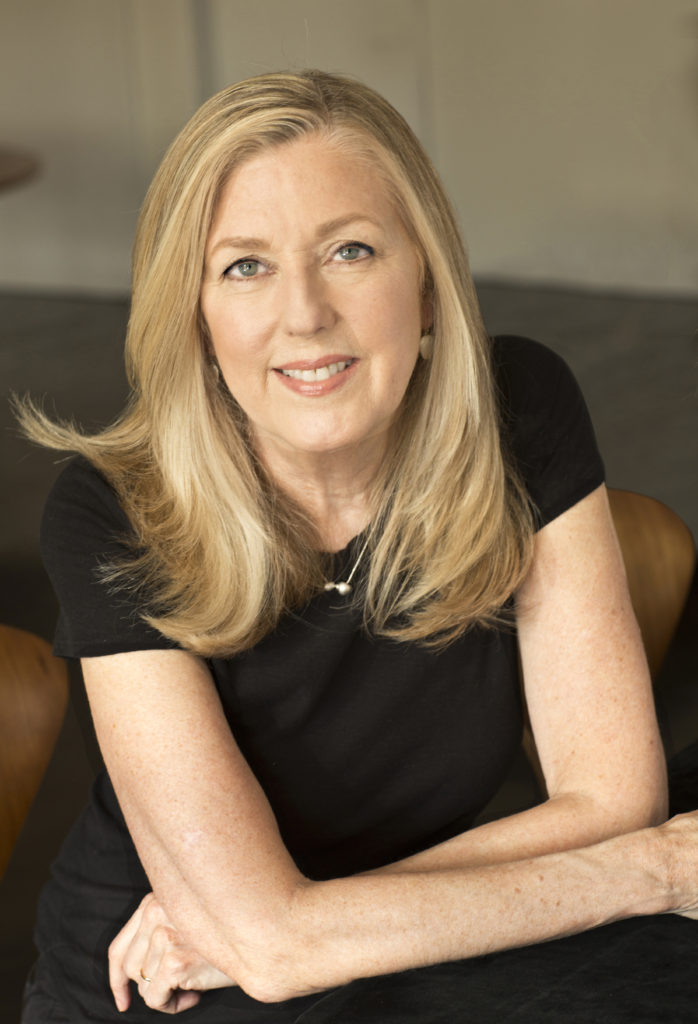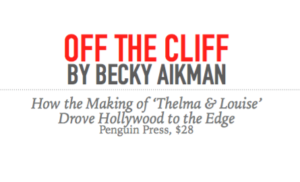
If anything good has come out of our culture in the last 18 months, maybe it’s that us Clueless White Guys are beginning to understand the problem.
To many of us, the election of the Pussygrabber in Chief was like sticking our heads in a sink full of ice cubes. And not long before that, there was that viral video showing a woman walking around the Five Boroughs getting catcalled by everything male.
As a Clueless White Guy, I’ve got to tell you how much those two events affected me. When I saw the catcalling video, I asked my adult daughters if that’s really what it was like to be a woman. Yes, they said, and worse.
And then that vile, groping guy got elected president.
This is all heavy on my mind as I read Becky Aikman’s new book, Off the Cliff. Aikman tells the story of the making of Thelma & Louise, and all of the behind-the-scenes battles to get the story on screen. The story of two renegades from sexual oppression and violence, it was the work of Callie Khouri, who became the first woman in 60 years to win a solo Oscar for screenwriting.
Since the film became such a touchstone of popular culture – 25 years ago now! – it might come as a surprise to Clueless White Guys what a struggle it was to make.
 The lead roles were played by women! That’s as rare as frost on a frying pan! A story about women — note plural — that did not cast them in the standard roles of “mom” or “hooker” (or perhaps both at once).
The lead roles were played by women! That’s as rare as frost on a frying pan! A story about women — note plural — that did not cast them in the standard roles of “mom” or “hooker” (or perhaps both at once).
The script was by a woman! Great mother of jabbering Jesus! Since when does that stuff happen?
And, of course, the director was the guy who made Alien. Yes! This makes perfect sense!
Off the Cliff doesn’t tell a story that merely pits women against men. The director, Ridley Scott, is as much of a horndog as the rest of us, but he is drawn to the story and making Thelma & Louise was his education and consciousness raising.
Studio head Alan Ladd Jr. also pushed the film, and we learn how he was the rare executive to move into production films with strong female leads. It was Laddie (as he was called), who suggested to director Scott during that earlier collaboration on Alien, “Say, why don’t we make a woman be the hero?”
Sigourney Weaver, here is your career.
The two stars of the film, Susan Sarandon and Geena Davis, were not the first choices. It was going to be Jodie Foster and Michelle Pfeiffer. Then it was Meryl and Goldie.

Sarandon is the hero of the book, both for her principled character as an actor and in the role she played, but also as a mentor to younger artists such as Geena Davis and … well, and nearly everyone else she comes across. She understands the characters and knows the power of the story. And she stands up for Davis when she catches the slightest whiff of exploitation.
And who better than Susan Sarandon to be charged with consciousness raising?
(Offscreen tidbit: George Clooney was turned down for the role that Brad Pitt got. This is the film that made Pitt into a star. Would the cosmos have evolved differently if Clooney had gotten the part? Discuss.)
There are a lot of great making-of-the-film books out there, dating from Lillian Ross’s magnificent Picture (about John Huston’s struggle to make The Red Badge of Courage in 1952). Later entries included John Gregory Dunne’s The Studio (about the horrifying Rex Harrison version of Doctor Doolittle), and Julie Salamon’s The Devil’s Candy (about turning The Bonfire of the Vanities into a film).
 Aikman’s book is one of the best of the making-of subgenre and certainly one of the best books about filmmaking since Peter Biskind’s Easy Riders, Raging Bulls.
Aikman’s book is one of the best of the making-of subgenre and certainly one of the best books about filmmaking since Peter Biskind’s Easy Riders, Raging Bulls.
But Off the Cliff is not just a book about making a movie. It’s about the culture that so devalues the contributions of the majority of its citizens. Aikman doesn’t preach; she doesn’t need to. The story is up on the screen.
